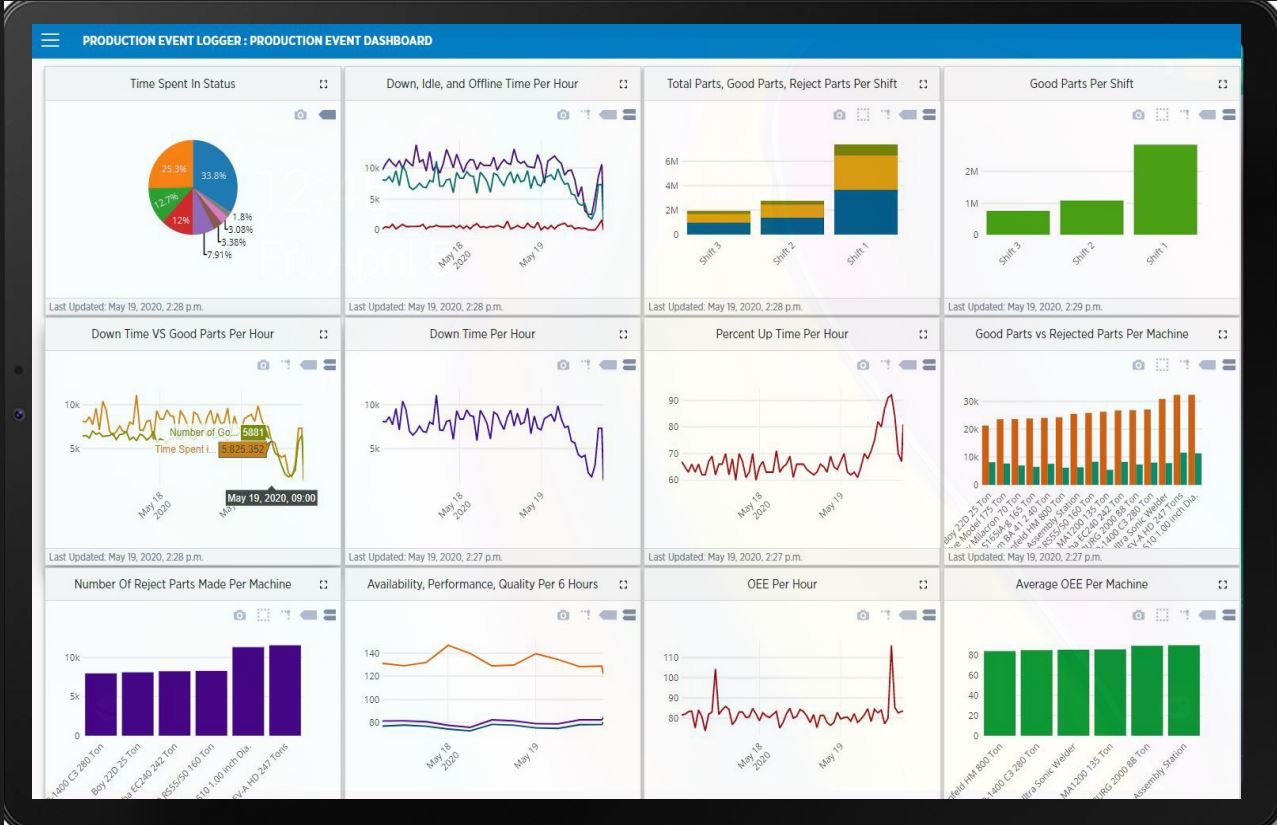PlantStar BLOG
Analytics Improve Manufacturing Operations & Performance
Nov 10, 2023 4:00:00 PM / by PlantStar Team

Capturing and storing data has become easier and cheaper than ever, and this is having a dramatic impact on manufacturing operations. Increasingly, how suppliers leverage manufacturing big data plays a primary role in their success or failure. However, few manufacturers are currently taking advantage of data analytics.
The advent of the industrial internet of things (IIoT) enables manufacturers to gain more visibility into their operations. In the past, this has been difficult to achieve. Adding intelligent sensors throughout the plant allows manufacturers to track more variables, such as the wear and tear on plant equipment, and get insights in real time.
Once data is generated, analytics information is placed in a central location, such as a manufacturing execution system (MES). This creates a central clearinghouse, so information can be shared throughout the organization. Adding artificial intelligence and machine learning enables manufacturers to quickly and easily correlate information and gain insights into how their operation is running. In essence, they evolve from legacy to smart manufacturing plants.
Simplified Collection of Manufacturing Data
Traditionally, suppliers relied solely on manual data collection to understand how their systems were operating. Not anymore. IIoT sensors and other special purpose devices have arisen, so data entry, collection, and logging increasingly have become automated. Goods makers place special sensors that monitor items like machine performance, process completion time, product quality, and inventory levels. These metrics help them better respond to manufacturing and supply chain conditions, improve flow, and boost performance.
Statistical process control (SPC) tools enable suppliers to monitor, control, and improve workflow. They rely on statistical measurement techniques to manage process variability. SPC aims to ensure that a manufacturing process runs efficiently and creates products that meet company and industry standards.
Data Analytics & Insights
In addition to the wide variety of new measurements, companies have more ways to correlate information and gauge trends. Descriptive manufacturing analytics collects and analyzes historical data, so executives and plant personnel gain insights into past manufacturing process efficiency and performance. Manufacturing analytics solutions help suppliers gain a better understanding of what has happened on the shop floor and in their operations, so they can make adjustments as needed. Suppliers rely on manufacturing analytics dashboards to consolidate all of the information and provide employees with a high level view of system performance. These solutions offer the ability to dig deeper into the numbers and ideally pinpoint trends, both good and bad, and turn insights into actionable improvements.
Key Metrics to Track
Manufacturing is a complex process, so a growing number of reports illustrate how a number of different components perform. Suppliers need to identify which metrics are vital to their operation. Consequently, manufacturing key performance indicators (KPIs) vary by company.
- Overall equipment effectiveness (OEE) examines metrics like downtime, reject codes, voltage, cycle times and counts, part counts, and job completions. It can be set to evaluate the performance of individual devices, plants, or time periods like shifts, days, or weeks.
- Quality metrics meausre yields, defects, scrap, and finished goods. They correlate the numbers to items and like time periods, deduce trends, identify strengths, and provide insights to streamline workflow.
- Production rate, cycle times, and downtime illustrate how well the plant is operating. These reports enable suppliers to not only evaluate past performance but also examine how to improve in the future.
The Benefits of Manufacturing Analytics
With analytics reporting, companies can reduce manufacturing errors. IIoT quality control systems provide real-time monitoring of production processes to detect issues and present context to personnel so they can take corrective action. This approach is a significant improvement over traditional methods like manual inspections of finished products, which can allow problems to persist for hours, days, and even weeks.
- Manufacturers can reduce downtime with predictive maintenance. Rather than wait until a device breaks down, they can service it to prevent malfunctions and downtime, enhancing manufacturing productivity.
- Because demand fluctuates, ensuring proper staffing can be challenging. Analytics reporting helps managers optimize staffing levels by helping them understand changing capacity needs. Ultimately, the business can reduce its labor costs and give employees a better sense of when they are needed.
- Manufacturing analytics help enterprises boost productivity by empowering employees to work proactively rather than reactively, preventing issues like equipment malfunctions or personnel shortages.
- When manufacturers can boost the quality of their products, this drives better customer satisfaction. They also provide clients with visibility into the process, allowing them to see when issues arise with supply chain or material production so they can take steps to lessen their impact.
Suppliers now have more ways than ever to improve their operations. By relying on data-driven manufacturing and following manufacturing analytics best practices, they can improve their operations and position themselves for success in the future. To learn more about manufacturing execution systems and how they fuel success, subscribe to the PlantStar blog.
Subscribe to Email Updates
Posts by Topic
- Manufacturing Execution Systems (38)
- manufacturing solutions (16)
- MES 101 (13)
- Industry 4.0 (11)
- improve efficiency (10)
- Plastic Molding (9)
- Plastics Technology (9)
- mes software (9)
- mes solutions (9)
- MES hardware (8)
- Shop Floor Production (8)
- digital transformation (7)
- Reduce scrap (6)
- data-driven-decisions (6)
- Medical molding (5)
- lean manufacturing (5)
- process monitoring (5)
- product quality (5)
- lights-out manufacturing (4)
- manufacturing dashboard (4)
- production monitoring (4)
- ERP integration (3)
- Shop Floor Safety (3)
- supply chain management (3)
- Injection Molding Technology (2)
- defect collection (2)
- machine mes (2)
- process variables (2)
- digital strategy (1)
- labor gap (1)
- throughput (1)
Related Articles


